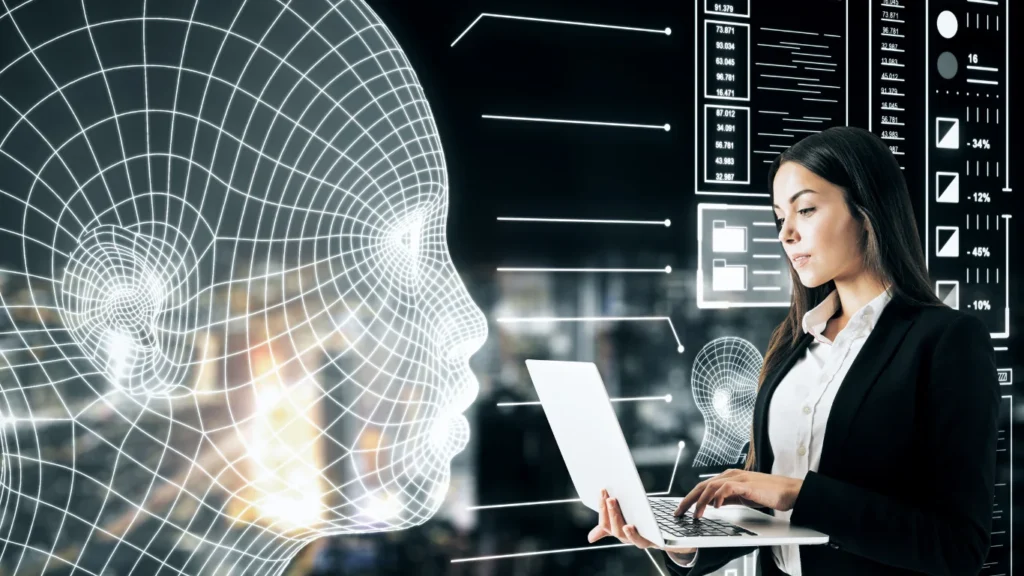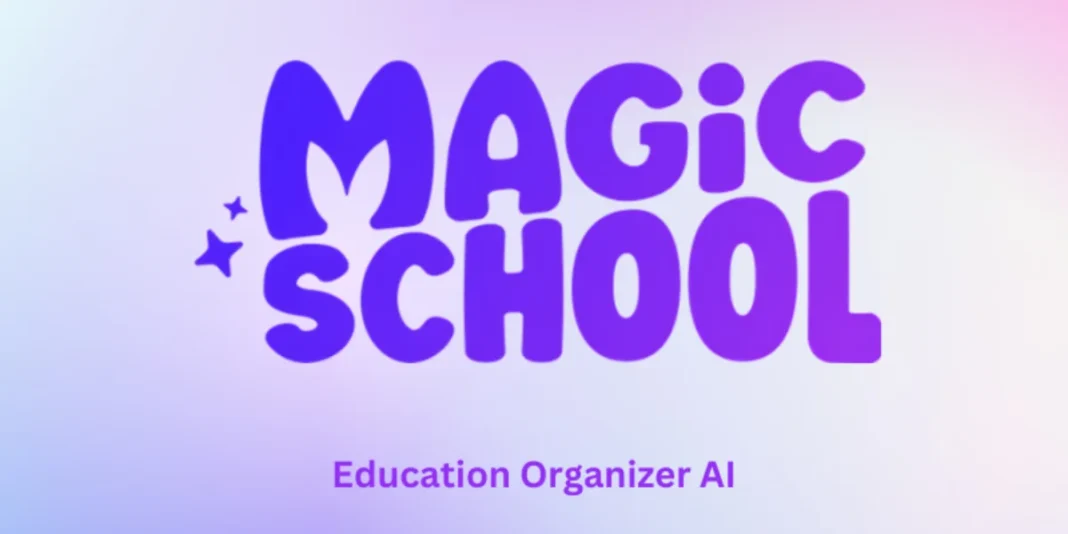In today’s fast-paced world, education is evolving rapidly, and one of the most exciting developments is the rise of magic school AI. This innovative technology is reshaping how students learn and how educators teach. Imagine a classroom where lessons are tailored to students’ needs, making learning effective and enjoyable. This is the concept of magic school AI, a technology that integrates artificial intelligence with educational approaches to provide a more interesting and personalised learning experience.
What is Magic School AI?
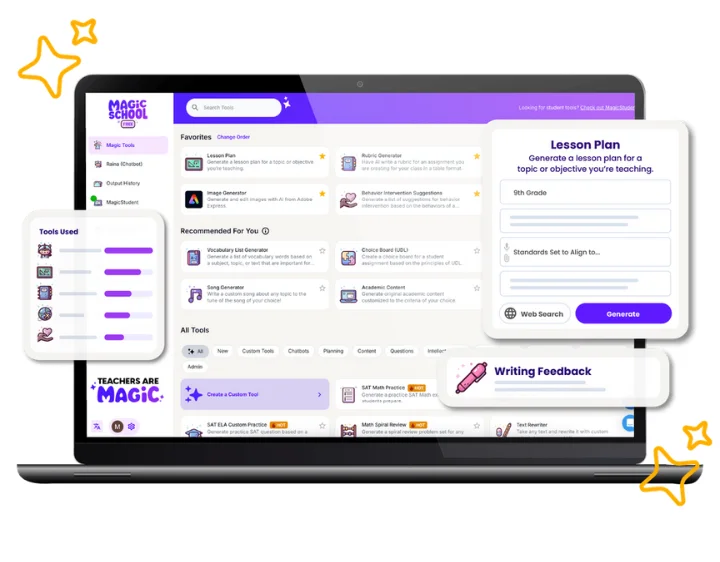
Magic school AI refers to integrating artificial intelligence technologies in educational settings. This can include intelligent tutoring systems to AI-driven learning management systems. Incorporating AI into the school setting aims to enhance the educational experience by providing personalized support, automating administrative tasks, and improving learning outcomes.
Key Features
- Adaptive Learning: Adjusts learning content based on students performance.
- Data Analytics: Provides insights regarding student progress and areas needing improvement.
- Interactive Tools: Engages students through gamified learning experiences.
Benefits of Using Magic School AI
Personalized Learning
A standout feature of Magic School AI is its ability to offer personalized learning experiences. Traditional classes typically fail to fulfil the various demands of their students. For example, if a student’s strong suit is math but struggles with reading, the AI can adjust the curriculum accordingly, providing more reading resources while allowing the student to advance in math.
Enhanced Engagement
Interactive components such as quizzes, games, and simulations are more likely to keep students focused and interested in their study. This engagement is critical for optimal learning since it encourages pupils to participate rather than passively absorb knowledge actively.
Efficient Administration
Educators often face overwhelming administrative tasks that take time away from teaching. Magic school can automate many tasks, such as grading assignments, tracking attendance, and managing schedules. This allows teachers to focus more on their students and less on paperwork, ultimately improving the quality of education.
How Magic School AI Works
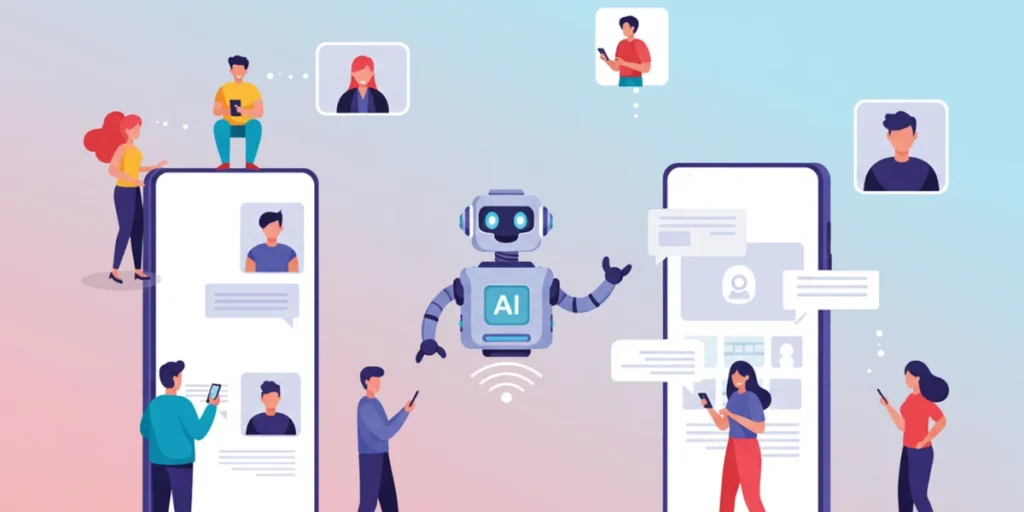
It operates through algorithms, machine learning, and data analysis. Here’s a simplified breakdown of how it works:
- Data Collection: The AI collects data from various sources, including student interactions, assessments, and feedback.
- Analysis: It uses this information to find patterns and trends in student performance.
- Adaptation: Based on the analysis, the AI adapts the learning materials and strategies to suit each student’s needs better.
- Feedback Loop: Continuous feedback from students and teachers helps the AI improve its recommendations.
Real-World Applications of Magic School AI
Magic school Artificial Intelligence is already being implemented in various educational settings. Here are some examples:
- Intelligent Tutoring Systems: Programs like Carnegie Learning use AI to provide personalized math tutoring.
- Learning Management Systems: Platforms like Canvas and Moodle are integrating AI features to enhance user experience and streamline course management.
- Virtual Classrooms: Tools like Google Classroom incorporate AI to facilitate better communication and collaboration among students and teachers.
Case Studies
- Carnegie Learning: This program uses AI to adapt math lessons to individual student needs, improving test scores and greater student confidence.
- Knewton: An adaptive learning platform that personalises educational content using real-time data, allowing students to learn at their own speed.
Challenges and Considerations
While the benefits of magic school AI are significant, there are also challenges to consider:
- Data Privacy: Protecting student data is critical, and institutions must verify compliance with requirements such as FERPA.
- Equity: Not all students have access to technology, which can create disparities in learning opportunities.
- Teacher Training: Educators need proper training to integrate AI tools into their teaching practices effectively.
Addressing Challenges
- Data Privacy: Schools should implement strict data protection policies and educate students and parents about data usage.
- Equity: Initiatives to provide devices and internet access to underserved communities can help bridge the technology gap.
- Teacher Training: Ongoing professional development programs can equip teachers with the skills to use AI effectively.
The Future of Magic School AI
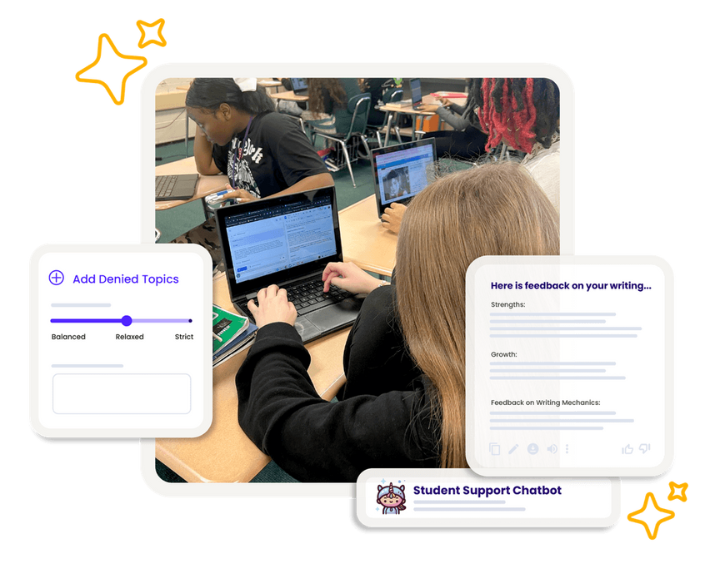
The future of magic school AI looks promising. As technology progresses, educational applications will become more innovative. Potential developments include:
- Greater Personalization: AI will excel at understanding individual learning needs.
- Integration with Virtual Reality: Combining AI with VR could create immersive learning experiences.
- Global Learning Communities: AI can connect students worldwide, fostering collaboration and cultural exchange.
Predictions
- Increased Adoption: More schools will adopt AI technologies as they become more affordable and accessible.
- Enhanced Collaboration: AI will facilitate collaboration between students and teachers across geographical boundaries.
- Focus on Soft Skills: AI can help identify and develop soft skills, such as teamwork and communication, which are essential for future careers.
Conclusion – Magic School AI
In summary, Magic School AI is revolutionizing the educational landscape by providing personalized learning experiences, enhancing student engagement, and streamlining administrative tasks. While there are challenges, the potential benefits far outweigh the drawbacks. As we look to the future, it’s clear that magic school AI will play a crucial role in shaping how the next generation is educated.
Related: Discover the Best Free AI for Graphic Design: Elevate Your Creativity
What is the primary purpose of magic school AI?
The primary purpose is to enhance the learning experience, provide a personalized learning plan, automate administrative tasks, and improve overall learning outcomes.
How does magic school AI personalize learning?
Magic School AI personalizes learning by analyzing student data in order to identify individual strengths and weaknesses, tailoring lessons and resources to meet each student’s unique needs.
Are there any risks involved in using magic school AI?
Yes, there are risks, including data privacy concerns, potential inequities in access to technology, and the need for proper teacher training to use AI tools effectively.
How can schools ensure data privacy when using magic school AI?
Schools can ensure data privacy by implementing strict data protection policies, educating students and parents about data usage, and complying with regulations like FERPA.
What are some examples of magic school AI in action?
Examples include intelligent tutoring systems like Carnegie Learning, learning management systems like Canvas, and virtual classrooms like Google Classroom, all of which use AI to enhance the learning experience.

